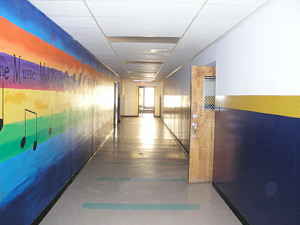Some Educational Action Items for Obama
So, with the economy in the proverbial toilet and the D word (depression) hovering on the periphery, what is the Obama administration supposed to do about education? What can it do? Will additional and new funding be necessary to address his main concerns?
So, with the economy in the proverbial toilet and the D word (depression) hovering on the periphery, what is the Obama administration supposed to do about education? What can it do? Will additional and new funding be necessary to address his main concerns?
To his credit, President Obama has consistently placed education high on his priority list; the economy, health, and education are his three top domestic concerns. And I believe this trio is not only critical but entirely interrelated and interdependent — and cannot be helped by quick fixes. Problems decades in the making are not reversed overnight. As President John F. Kennedy said, “All this will not be finished in the first one hundred days. Nor will it be finished in the first one thousand days, nor in the life of this administration, nor even perhaps in our lifetime on this planet. But let us begin.”
But begin we must. So what to do and how to fund? In this area, I offer several suggestions on how we might provide excellence in public education to all children beyond the needed added emphasis placed on overall literacy. First, we should do as President Obama said in various campaign speeches and create 20 Harlem Children’s Zones in major cities. But to do this, I would add, we should fund (perhaps with matching challenge grants) another 20-60 smaller zones based on this model of changing school cultures by changing the culture of surrounding neighborhoods. This can only be achieved by focusing on health care, pre- and post-natal programs, neighborhood security, after-school programs, employment, parent training and other reform measures.
Next, I suggest we restore to curricula across the country what I call “The Five Other Solids”: the arts; community service/action programs; human development programs (drug education, sex education, etc.); physical education (not just team sports, but yoga, fitness, nutrition, etc.); and environmental outdoor education – for how are we to save the planet by graduating generations of youth who have no relationship to the Earth?
All of these are important, but I would start with restoring the arts to the school day curriculum, not just in the form of token after-school gestures. There is just too much evidence supporting the many benefits of the arts to continue our obsession with testing to the exclusion of all else. Students will express themselves, as the arts allow for positive expression. Deny this fundamental need and it will explode elsewhere.
The other four of these “other solids” are each critical — building a sense of community, caring for others, caring for our planet, caring for our own health and others, and learning how to communicate with others. Most students and human beings do not flunk out of life intellectually; they flunk out emotionally. Schools can help prevent such.
These “Five Other Solids” have several things in common: They are hands-on, experiential, and embrace project-based activities. They enrich the curriculum and bring humanity into the classroom and, most importantly, they engage students, thus preventing drop-outs. Every drop-out averted is a huge national gain — in funds saved, in citizen productivity and in equal opportunity.
So for the moment, let’s stop at improving neighborhoods and expanding curricula.
How to fund these ideas? Obviously not by cutting revenue, as in tax cuts — so yes, by increasing revenue. While this is a hugely complicated issue, I believe it is ultimately a matter of priorities. President Obama certainly believes this as well, and finally we have a president who seems aware that there is widespread suffering in the country as well as a disgraceful inner-city educational system.
Funding education is achievable, but only when the gargantuan defense budget is restored to sanity and the tax structure is dramatically overhauled. Since Ronald Reagan, we have had 30 years of (upward) wealth redistribution. Perhaps we might now consider re-leveling the playing field through making a long-term investment in education.
Your support matters…Independent journalism is under threat and overshadowed by heavily funded mainstream media.
You can help level the playing field. Become a member.
Your tax-deductible contribution keeps us digging beneath the headlines to give you thought-provoking, investigative reporting and analysis that unearths what's really happening- without compromise.
Give today to support our courageous, independent journalists.






You need to be a supporter to comment.
There are currently no responses to this article.
Be the first to respond.